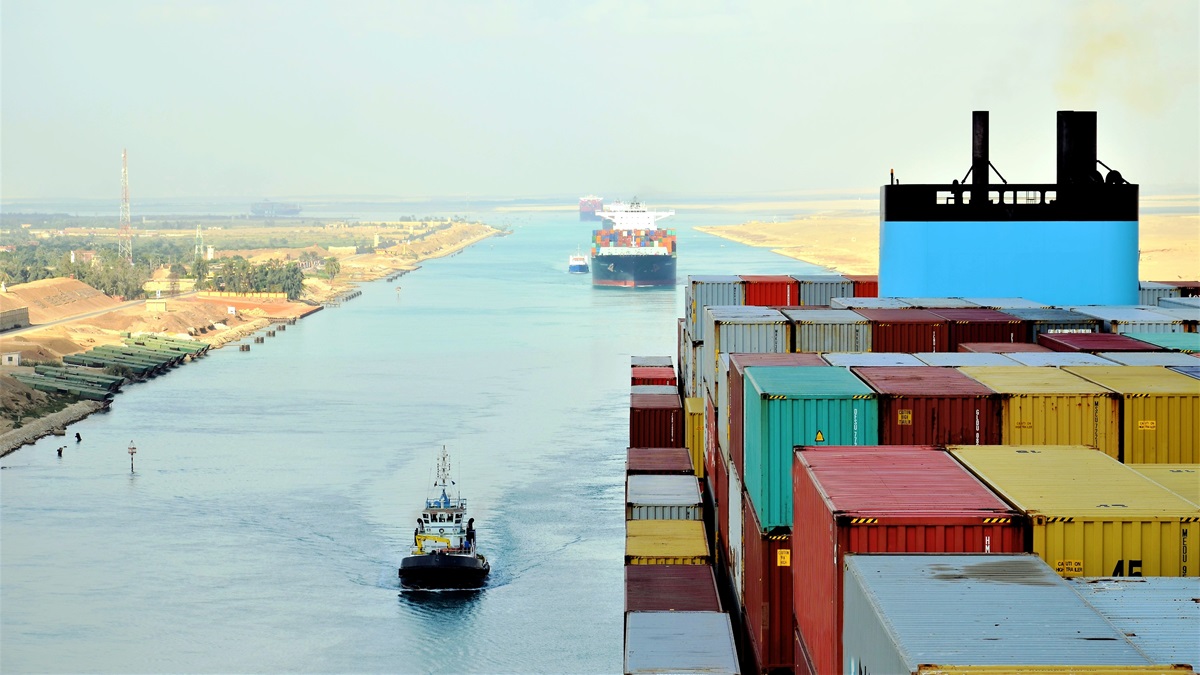The contest will inspire innovative solutions to make global supply chains greener and more efficient and resilient.

© Shutterstock/ Mariusz Bugno | Cargo ships pass through the Suez Canal.
An innovation challenge will be a key feature of the inaugural Global Supply Chain Forum, jointly staged by UNCTAD and Barbados in the nation’s capital Bridgetown from 21 to 24 May.
The Supply Chain Innovation Challenge aims to inspire innovative solutions to make global production and distribution networks greener and more efficient and resilient, turning trade opportunities into shared development gains.
The winning proposal will be presented at the upcoming forum.
Those interested in participating should submit their proposals in English via an online form between 17 January and 17 March. Requests for more information may be sent to the forum’s secretariat at gscf@unctad.org.
Global supply chains: What’s at stake?
“Supply chains drive trade and the world economy,” says Jan Hoffmann, head of trade logistics at UNCTAD.
International shipping for instance connects countries and ports, carrying over 80% of global merchandise trade.
But in recent years, they’ve come increasingly under threat from global crises such as climate change, geopolitical tensions and energy shortages.
“With that, the forum will focus on the policy actions required to better prepare countries, especially developing economies, to cope with future shocks to global supply chains,” Mr Hoffmann says.
Government officials, business leaders and experts will convene in Bridgetown to explore how best to promote development through sustainable and resilient transport and logistics, improved connectivity and trade facilitation.
Key issues for discussion at the forum will include digitalization, food security, transport costs, climate change, developing countries’ financing needs and how to better manage the energy transition in international transport.



